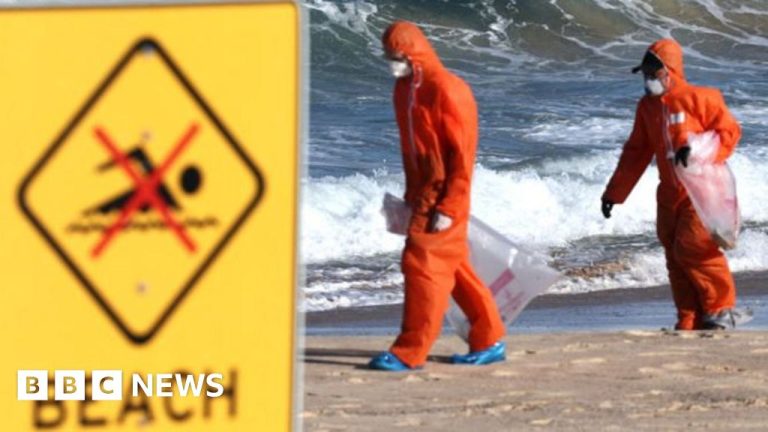Australian scientists have solved a mystery that worries Sydney: what were the dark, sticky spots that washed up on some of the city's famous beaches last month?
Initially thought to be tar balls, they were actually a “disgusting” mixture of human feces, cooking oil, chemicals and illicit drugs, researchers say.
Eight beaches, including Bondi, were closed for several days and a massive clean-up was ordered after thousands of black deposits appeared from October 16.
Tests by chemists determined that the balls were most likely the result of a sewage spill, although their exact origin remains unknown.
Last month, New South Wales (NSW) authorities said they suspected the items were a mixture of fatty acids, fuel oil and chemicals found in cleaning and cosmetic products.
But further testing revealed that this material likely did not come solely from an oil spill or ship waste, as some had thought.
Each ball was slightly different but had a firm surface – partially hardened by the accumulation of sand and minerals like calcium – and a soft core.
Inside was everything from cooking oil and soap scum molecules to blood pressure medications, pesticides, hair, meth, and veterinary drugs.
“They smell absolutely disgusting, they smell worse than anything you've ever smelled,” lead investigator Associate Professor Jon Beves of the University of New South Wales told 9News.
Professor William Alexander Donald said they resembled blobs of fat, oil and grease – often called fatbergs – which commonly form in sewage systems.
Detection of these substances, as well as recreational drugs and industrial chemicals, “pointed us toward sewage and other sources of urban effluent,” he said.
Researchers said they had received unconfirmed reports of smaller but similar balls washing ashore over the past two years.
Sydney Water reported there were no known issues with waste treatment systems in the city.

